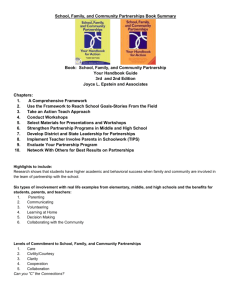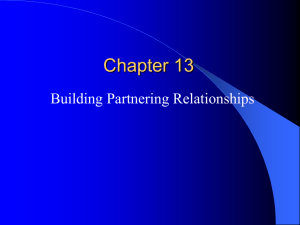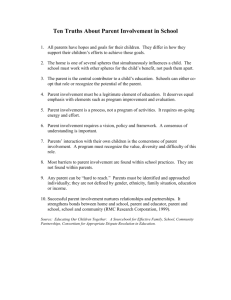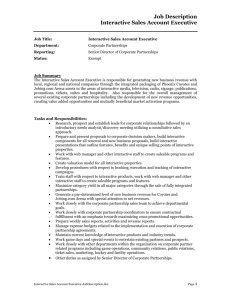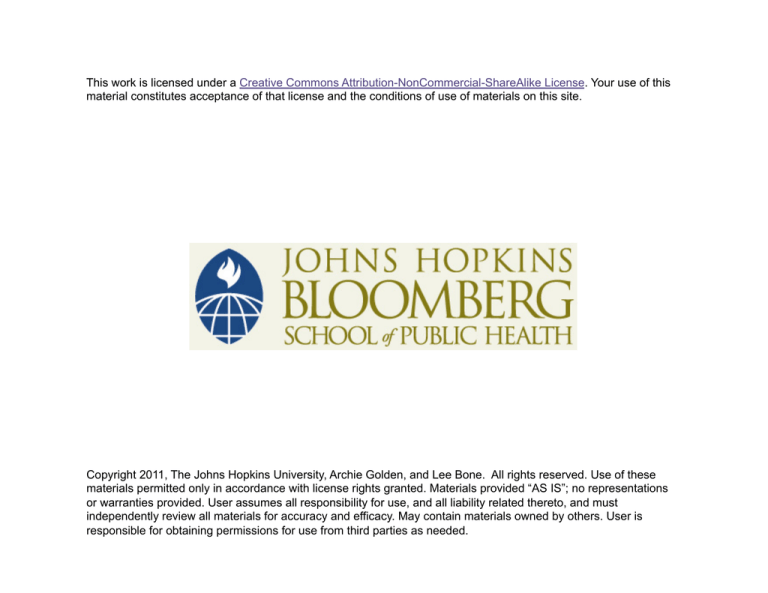
This work is licensed under a Creative Commons Attribution-NonCommercial-ShareAlike License. Your use of this
material constitutes acceptance of that license and the conditions of use of materials on this site.
Copyright 2011, The Johns Hopkins University, Archie Golden, and Lee Bone. All rights reserved. Use of these
materials permitted only in accordance with license rights granted. Materials provided “AS IS”; no representations
or warranties provided. User assumes all responsibility for use, and all liability related thereto, and must
independently review all materials for accuracy and efficacy. May contain materials owned by others. User is
responsible for obtaining permissions for use from third parties as needed.
Section B
Lessons Learned
Mobilizing out of a Crisis
A crisis can be a time to begin sustained change
Following the 1968 riots after the assassination of Martin Luther
King, Jr., both sides took advantage of the situation
The East Baltimore Community Corporation met health and housing
needs but helped advance political careers
3
Taking Advantage of Opportunities
Donors were interested in stimulating partnerships with churches as
social institutions in touch with the people
Appreciate the perspectives of all partners
Build on each other’s capacities and strengths
4
Mutual Interests
Communities, especially churches, were interested in:
- Resources (money) coming to the community
- Relationships which provide “access” to key leaders
- Action to deal with the problems
Academics’ and donors’ interests lie in scholarship and generating
new knowledge
Both parties want rewards and recognition
5
Hopkins Magazine on Community Health Issues
6
Benefits of Trusted Relationships
The leaders on both sides acquire political power in their respective
systems
The relationships built among faculty are similar to the trust and
friendships formed between community members
Both may result in career advancement
7
Balance the Interests of Many Groups
Can you be all-encompassing in the partnership?
No community is homogeneous
- Academics need to be conscious of the competing interests in
the community
- Community leaders need to understand the career advancement
needs of faculty
Competitiveness is both a blessing and a curse
- Groups are fending for money and/or access
- Can stimulate extra effort
- Divisions may need to be honored and reflected in how the
program is run
This may require there to be multiple community projects run by
different faculty, but coordinated
8
Rewards of Partnership
Faculty need to have scholarly publications
Community members should be listed as co-authors
In creating and disseminating information, there needs to be
appropriate attribution of partner contributions
Results of research needs to be translated and communicated
appropriately to the public
9
Collaboration as Partners
10
Rewards of Partnership
Faculty need to have scholarly publications
Community members should be listed as co-authors
In creating and disseminating information, there needs to be
appropriate attribution of partner contributions
Results of research needs to be translated and communicated
appropriately to the public
11
Sustaining Partnerships
Sustaining partnerships is difficult and dirty
Needs strong leaders and champions
Trust is essential to sustained partnerships
Must be able to tell the other partner when things are not going
well
Conflict resolution is an essential skill
“Keep our eye on the prize”—a common goal
Lay aside ego and personal interests in power
12
Funding Partnerships
Fiscal resources are essential to sustaining partnerships
Communities expect academics to provide the funding
However, funding is not constant
Partnerships can become “dormant”
13
The “Heart-Work” in Partnerships
Persistence is a key characteristic of successful partnerships
It does not always take the same individuals
A really successful partnership figures out how to nurture new
leadership for new projects
Academicians need to mentor new faculty and expand the
infrastructure
14
Partners: Community and Hopkins
Younger generation respectful of prior leadership, but they also
want to create a new dynamic to reflect new attitudes and
circumstances
Important to incorporate as many faculty as possible
Infrastructure and support are essential
15
Bringing in the Next Generation
It is difficult for faculty to get away from their desks to go out and
work in the community
Students need to be engaged in the importance of this community
work, at least for some of their career
16
Active Listening Is an Essential Skill
Communication involves both talking and listening
Community health advocates for the East Baltimore Medical Center
were trained for in-home care
However, the leadership of the corporation did not understand the
role they were being trained to do
The medical director they selected did not have a vision for working
outside the clinic walls
Frequently the future challenges are not anticipated by the
leadership
17

